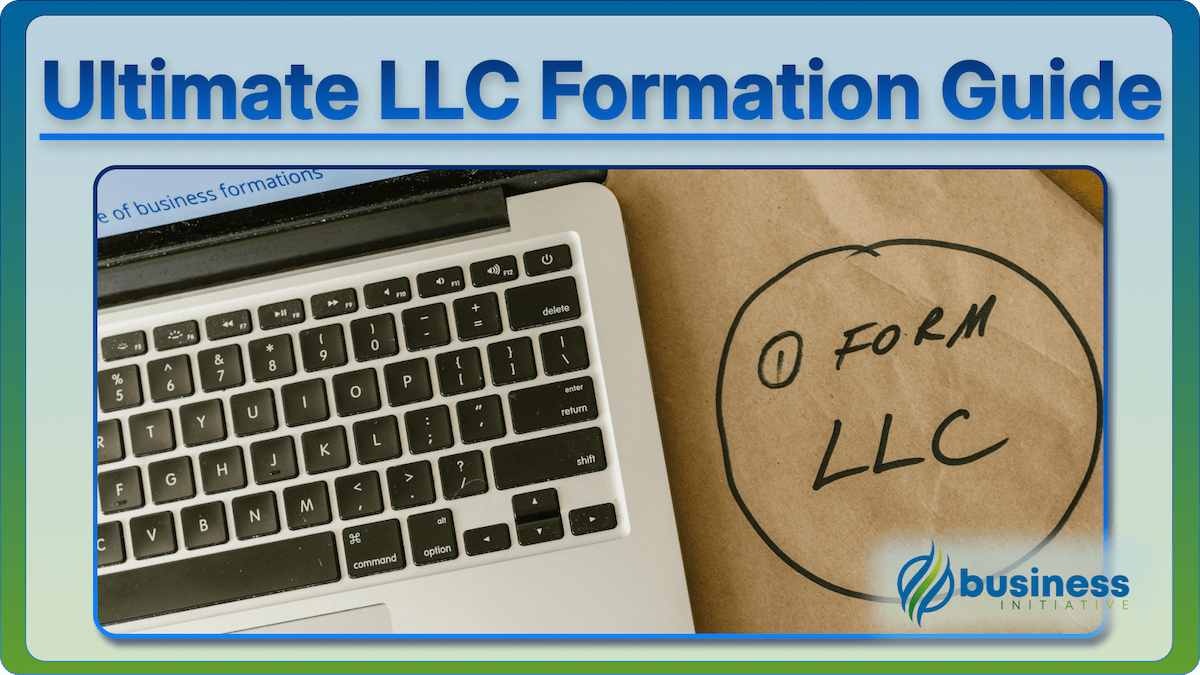You form your business.
You think you’re done. You’re not.
Compliance never stops.
Annual reports. Franchise taxes. State filings. Ongoing requirements.
This guide shows you the calendar.
What to file. When to file it. How much it costs. Your compliance timeline.
Read this. Know your deadlines. Never lose good standing.
 Key Takeaways
Key Takeaways
- Annual reports and franchise taxes are recurring requirements—most states require annual reports, and many require franchise taxes, with deadlines varying by state and entity type
- Deadlines vary by state—some states require annual reports on the anniversary of formation, others have fixed dates, and franchise tax deadlines differ by state
- Missing deadlines results in penalties and revoked status—late fees, penalties, and potential loss of good standing can shut down your business
- Registered agent services can help track deadlines—many services provide compliance reminders and deadline tracking to prevent missed filings
- Create your own compliance calendar—track all deadlines in one place, set reminders, and never miss a filing
 Table of Contents
Table of Contents

Why Calendar Matters
Compliance deadlines never stop.
What happens without a calendar:
- Missed deadlines
- Penalties and fees
- Revoked business status
- Business operations halted
What happens with a calendar:
- Deadlines tracked
- Filings completed on time
- Good standing maintained
- Business operations continue
The reality: A compliance calendar prevents costly mistakes.
Annual Reports Overview
Annual reports are recurring requirements:
What Are Annual Reports?
What they are:
- Recurring state filings
- Update business information
- Confirm business is active
- Required in most states
Why it matters: Annual reports maintain good standing.
When Are They Due?
Common deadlines:
- Anniversary of formation
- Fixed calendar date
- End of fiscal year
- Varies by state
Why it matters: Deadlines vary by state.
What Information Is Required?
Common requirements:
- Business name and address
- Registered agent information
- Officer/member names
- Business activities
Why it matters: Information must be accurate.
Pro tip: Annual reports are required in most states. Check your state’s specific requirements. See our compliance failures guide for consequences of missing deadlines.

Franchise Taxes Overview
Franchise taxes are recurring requirements:
What Are Franchise Taxes?
What they are:
- Recurring state taxes
- Paid for privilege of doing business
- Different from income taxes
- Required in many states
Why it matters: Franchise taxes maintain good standing.
When Are They Due?
Common deadlines:
- End of fiscal year
- Fixed calendar date
- Varies by state
- May be due with annual report
Why it matters: Deadlines vary by state.
How Much Do They Cost?
Cost factors:
- State requirements
- Entity type
- Business size
- Varies significantly
Why it matters: Costs vary by state and entity.
Pro tip: Franchise taxes are required in many states. Check your state’s specific requirements. See our compliance failures guide for consequences of missing deadlines.
State-by-State Deadlines
Deadlines vary by state:
Common Deadline Patterns
Anniversary-based:
- Due on anniversary of formation
- Example: Formed January 15, due January 15 each year
Fixed date:
- Due on specific calendar date
- Example: Always due by March 1
Fiscal year-based:
- Due at end of fiscal year
- Example: Fiscal year ends June 30, due by August 31
Why it matters: Understanding patterns helps planning.
State-Specific Requirements
What to check:
- Annual report deadline
- Franchise tax deadline
- Filing fees
- Late penalties
Why it matters: Requirements vary significantly.
Pro tip: Check your state’s specific requirements. See our state directory for state-specific information.

Entity Type Requirements
Requirements vary by entity type:
LLC Requirements
What LLCs need:
- Annual reports (most states)
- Franchise taxes (many states)
- State-specific filings
- Ongoing compliance
Why it matters: LLCs have ongoing requirements.
Corporation Requirements
What corporations need:
- Annual reports (most states)
- Franchise taxes (many states)
- State-specific filings
- Ongoing compliance
Why it matters: Corporations have ongoing requirements.
Partnership Requirements
What partnerships need:
- Annual reports (some states)
- Franchise taxes (some states)
- State-specific filings
- Ongoing compliance
Why it matters: Partnerships have ongoing requirements.
Pro tip: Requirements vary by entity type. Check your entity’s specific requirements. See our entity compliance guide for detailed requirements.
Compliance Calendar Template
Use this template for your compliance calendar:
Annual Deadlines
January:
- Annual report (if due in January)
- Franchise tax (if due in January)
- State-specific filings
February:
- Annual report (if due in February)
- Franchise tax (if due in February)
- State-specific filings
Continue for all months…
Quarterly Deadlines
Q1 (Jan-Mar):
- Quarterly tax filings (if applicable)
- State-specific quarterly requirements
Q2 (Apr-Jun):
- Quarterly tax filings (if applicable)
- State-specific quarterly requirements
Continue for all quarters…
Monthly Deadlines
Every month:
- Review compliance calendar
- Check for upcoming deadlines
- Update compliance status
Why it matters: Monthly review prevents missed deadlines.
Pro tip: Create your compliance calendar based on this template. Customize for your state and entity type. See our compliance dashboard guide for tracking systems.

Tracking Systems
Set up tracking systems:
Calendar System
What to set up:
- Calendar for all deadlines
- Multiple reminders
- Recurring events
- Deadline alerts
Why it matters: Calendar system prevents missed deadlines.
Spreadsheet System
What to track:
- Filing type
- Due date
- Filing status
- Fees paid
Why it matters: Spreadsheet provides overview.
Registered Agent Reminders
What to use:
- Registered agent compliance reminders
- Email alerts
- Portal notifications
- Deadline tracking
Why it matters: Registered agent reminders provide backup.
Pro tip: Use multiple tracking systems. Calendar, spreadsheet, and registered agent reminders. See our registered agent guide for service options.
Your Next Steps
Create your calendar. Track your deadlines. Never miss a filing.
This Week:
- Review this guide
- Identify your compliance requirements
- Create your compliance calendar
- Set up tracking systems
This Month:
- Add all deadlines to calendar
- Set up reminders
- Review compliance status
- File any upcoming requirements
Going Forward:
- Review calendar monthly
- File all requirements on time
- Update calendar as needed
- Maintain good standing
Need help? Check out our registered agent guide for service options, our compliance failures guide for avoiding problems, our compliance dashboard guide for tracking systems, our first-year calendar guide for detailed requirements, and our state directory for state-specific information.
Stay informed about business strategies and tools by following us on X (Twitter) and signing up for The Initiative Newsletter.
FAQs - Frequently Asked Questions About Annual Reports and Compliance Calendars

What are annual reports and franchise taxes?
Annual reports are yearly filings with the state that update your business's information (e.g., address, registered agent). Franchise taxes are fees or taxes some states charge for the privilege of doing business there. Both have deadlines that vary by state and entity type.
Learn More...
Not all states have franchise tax; all states with LLCs or corps require some form of periodic reporting or fee.
Deadlines can be tied to your formation anniversary or to a fixed date (e.g., April 15).
Missing either can lead to penalties, late fees, and loss of good standing.
When are annual report and franchise tax deadlines?
Deadlines vary by state: some use the anniversary of formation, others a fixed date. Check your state's Secretary of State or business division for your entity type. Create a compliance calendar and set reminders so you never miss a filing.
Learn More...
Many states allow online filing; due dates are often listed on the state website.
First-year deadlines can differ from ongoing years; use a first-year calendar guide if you're new.
A compliance dashboard or registered agent service can help you track multiple states and entities.
What happens if I miss an annual report or franchise tax deadline?
You can face late fees, penalties, and eventually loss of good standing or administrative dissolution. Reinstatement can be costly. File as soon as possible if you missed a deadline and check your state's reinstatement process.
Learn More...
Some states give a grace period; others impose penalties immediately.
See our compliance failures guide for how to avoid and fix loss of good standing.
Registered agents often send reminders; use them to stay on top of deadlines.
How do I create a compliance calendar?
List every recurring requirement (annual reports, franchise taxes, other state filings) by state and entity. Add due dates from state websites or your registered agent. Set calendar reminders well before each deadline and track filings in one place.
Learn More...
Include first-year and ongoing deadlines; they can differ.
Use our compliance dashboard and first-year calendar guides for structure.
Review and update the calendar when you add entities or states.
Can a registered agent help with compliance deadlines?
Yes. Many registered agent services send compliance reminders and deadline alerts. They can help you avoid missed filings. Use our registered agent guide and state directory to choose and manage agents; combine with your own calendar for reliability.
Learn More...
Agents don't file for you unless you pay for that service; they remind you of what's due.
For multiple entities or states, a single service that tracks all can simplify compliance.
Still keep your own list so you're not fully dependent on one channel.
Sources & Additional Information
This guide provides general information about compliance calendars. Your specific situation may require different considerations.
For registered agent services, see our Registered Agent Guide.
For compliance failures, see our Compliance Failures Guide.
For compliance tracking, see our Compliance Dashboard Guide.
For first-year requirements, see our First-Year Calendar Guide.
For state-specific information, see our State Directory.
Consult with professionals for advice specific to your situation.


